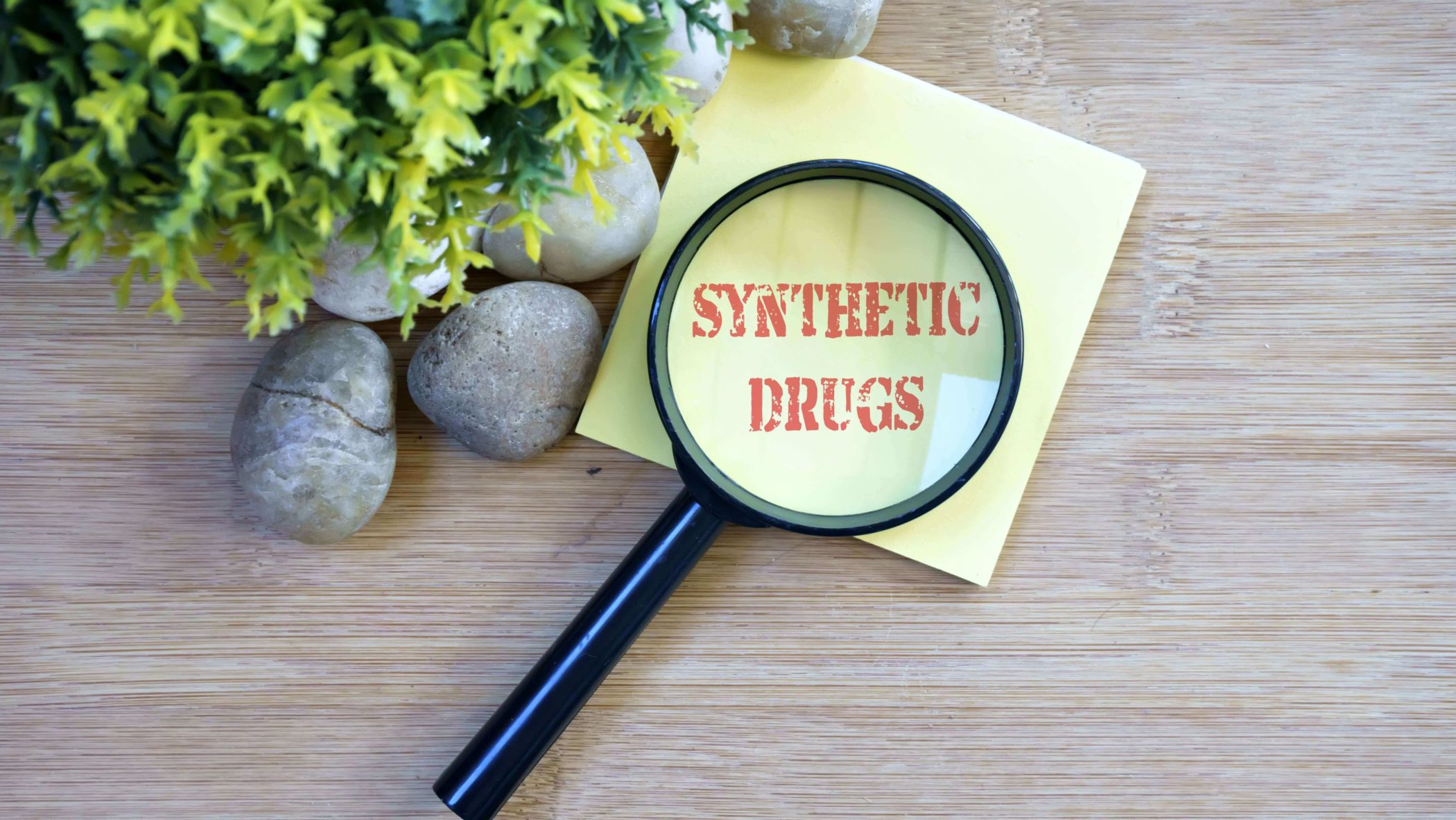Some drugs, like cannabis, come from natural sources. But other drugs — known as club, synthetic, or designer drugs — are manufactured from artificial materials. These drugs are made in laboratories from synthetic chemicals and are designed to copy the effect of drugs such as marijuana, cocaine, or morphine. Synthetic drugs may be even more dangerous than these other drugs because they can have an unpredictable impact on the brain or behavior. Because these designer drugs are made in a lab, often overseas, it’s difficult — and sometimes impossible — to know what they contain or their strength, adding to the risk.
Types of Synthetic Drugs
Although there are hundreds of types of synthetic drugs, they can be generally classified into three different categories based on their chemical composition: synthetic cathinones, synthetic cannabinoids, or synthetic phenethylamines.
- Synthetic cathinones increase the serotonin or dopamine levels in the brain, causing an individual to feel an increased level of happiness or motivation. This type of designer drug will also stimulate the brain’s reward center. Cathinones are also known as “bath salts” and are sold under names such as Bliss, Cloud Nine, Lunar Wave, Vanilla Sky, or White Lighting.
- Synthetic cannabinoids mimic the effects of THC, the main ingredient in marijuana. These types of synthetic drugs are commonly called K2 or Spice. Unlike naturally grown marijuana, however, synthetic cannabinoids produce a much stronger effect on the brain and can even cause psychosis.
- The final category, synthetic phenethylamines, produces hallucinogenic reactions. They impact the brain’s sensory input, altering the user’s senses of sight, sound, taste, and touch, as well as producing feelings of detachment from the body. They may be called N-bomb or Smiles.
Short-Term Effects Of Synthetic Drugs
Since most synthetic drugs are often much more potent than their natural counterparts, they are more likely to cause negative side effects. Most synthetic drugs produce effects similar to stimulants, hallucinogens, or opioids. Some of the most common short-term effects of synthetic drugs include:
- Paranoia
- Anxiety
- Aggression
- Hallucinations
- Vomiting
- Increased heart rate
These effects can lead to dangerous or even life-threatening behaviors. Sometimes, these drugs can also lead to hospitalization or death.
Long-Term Effects Of Synthetic Drugs
The long-term effects of synthetic drugs are largely unknown due to the relatively new nature of these substances. However, some evidence suggests that they can cause serious health problems. Synthetic cannabinoids, for example, have been linked to an increased risk of psychosis and seizures. Moreover, research suggests that synthetic cathinones can damage the brain and cause mood, sleep, and appetite problems. Although more research is needed to understand the full extent of the risks, it is clear that synthetic drugs can have serious consequences.
Signs of Synthetic Drug Use
Several signs may indicate someone is using synthetic drugs, including changes in behavior, appearance, and overall health. For example, someone using synthetic drugs may become more withdrawn and isolate themselves from friends and family. They may also neglect their hygiene, and their sleeping patterns may change. In addition, they may suffer from increased anxiety and paranoia and may have difficulty concentrating.
Other signs include:
- Dilated pupils
- Excessive sweating
- Increased heart rate
- Unexplained weight loss
- Suppressed appetite
- Hallucinations
- Difficulty sleeping
Dangers of Synthetic Drugs
Because these types of illegal drugs have no manufacturing standard, they are considered more unpredictable than non-synthetic drugs. This is because the person taking the synthetic drug will have no idea what is contained in the drug.
For instance, synthetic cannabinoids can cause multiple health problems such as rapid heart rate, vomiting, violent behavior, and suicidal thoughts. They are also addictive and can cause overdoses. Other risks of synthetic cannabinoids include:
- toxic reactions
- increased blood pressure
- reduced blood supply to the heart
- kidney damage
- seizures
Researchers are still not certain about all the effects that synthetic cathinones have on the human brain. One study did reveal that a common type of this designer drug impacted the brain in the same way as cocaine but was 10 times more powerful.
Synthetic cathinones are also addictive and can cause health problems ranging from chest pain to an elevated heart rate. Outcomes for users of these drugs are generally worse when they snort or inject these designer drugs with a needle. If the use of these drugs results in delirium, the user may also experience dehydration and even kidney failure, among other serious concerns.
Because of the way they are manufactured and created, synthetic drugs are highly addictive, unpredictable, and dangerous. If you are struggling with these substances, please seek professional addiction treatment as soon as possible.
At Bridges of Hope, our treatment philosophy is based on a comprehensive and integrated approach to addressing all issues related to substance use and mental health disorders. Utilizing therapeutically proven, evidence-based clinical practices, we provide superior patient care throughout Indiana through our all-inclusive treatment services.


 Verify Insurance
Verify Insurance
 Toll Free Call
Toll Free Call